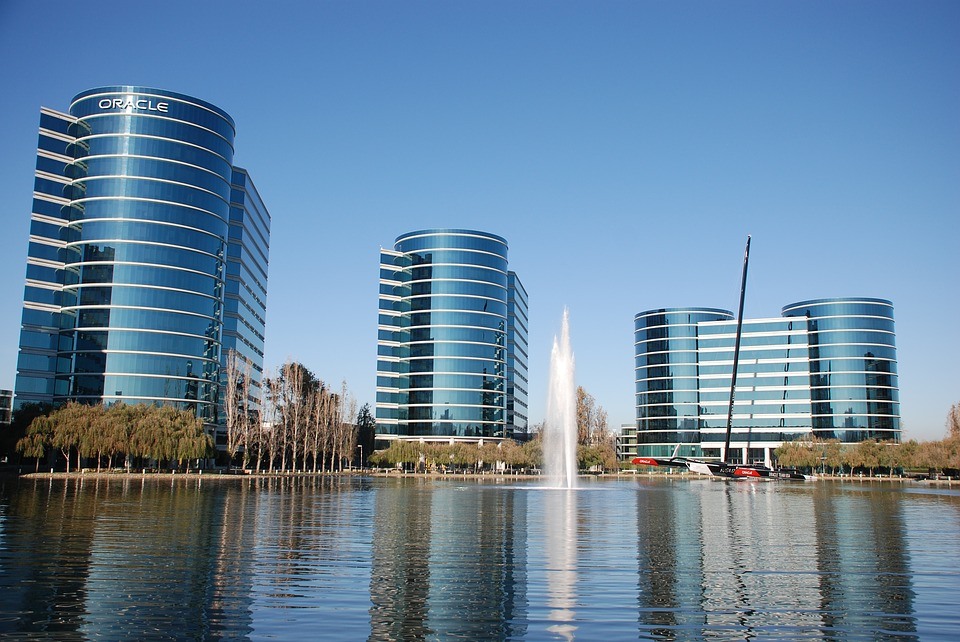Today is seeing a charged political conversation about how H-1B highly skilled non-immigrant visas affect the economy, corporations, and the workforce. Approximately two-thirds of requests for H-1B visa are from science, technology, engineering, and mathematics or STEM occupations. With 23% of computer technology positions filled by H-1B workers, it is important to analyze the impact of the H-1B on the technology industry and the U.S. economy as a whole, as well as quantify the implications of reducing the H-1B cap or raising the prevailing wage.
There are unexpected consequences to the H-1B visa and the policies used to determine whose visa petitions will be approved. H-1B visas fill employment gaps in STEM occupations, stimulate economic growth and accelerate wage growth an all sectors. It has been argued that H-1B workers displace American workers or cause them to earn lower wages.

However, in 2015 90% of software developer positions at companies like Facebook, Google, Apple, and Microsoft paid more than $100,000 per year. Therefore, for these companies, increasing the minimum required salary for H-1B workers would not be especially impactful.
If it were, they would be more likely to move their operations overseas than to hire domestic workers with less training. The hardest hit by an increase in the minimum required salary for an H-1B would be India-based staffing companies who are H-1B dependent.
The H-1B program was created in 1990 at the dawn of the technology revolution. It is often argued the H-1B workers drive down wages and take jobs from Americans. However, the data indicate otherwise.
- Between the creation of the H-1B program and the year 2010, increases in H-1B STEM workers were associated with a significant increase in earnings for college-educated U.S.-born workers in 219 American cities.
- Immigrant labor also lowered the price of computer equipment by up to 2.4%.
- A study published by the American Immigration Council reported that increases in H-1Bs among STEM workers resulted in wage increases for not only college-educated, U.S. born workers but also non-college educated workers.
- There was a 7 to 8% pay increase city wide for every 1% increase in the number of STEM workers in 219 U.S. cities.
- Wage growth within the technology sector also proceeded faster with a growth of 5.5% in the technology sector compared to .8% across all industries.
- A 1990 study found that immigration increased wages across the general economy from .04% to .28%.
Although H-1B workers with STEM degrees earn more than U.S. born workers with a bachelor’s degree, STEM professions overall earn more than other degrees. The Department of Education reports that STEM majors earn an average of $65,000 compared to $15,500 less for non-STEM majors. STEM majors are also more likely to hold one full-time job instead of part time or multiple jobs.
In addition, according to the American Immigration Council,
“Factors such as gender, marital status, and ethnicity play a larger role than citizenship or immigration status for wages in the tech and finance industries—industries that use a large number of H-1B visas. A worker’s geographic region also accounts for significant differences in wages.”
Race, gender, age, region, parenthood and marital status all were larger wage determining factors than a company’s level of H-1B dependency. For example, the American Institute of Economic Research states that women in six highly skilled computer occupations earned $6,358 less than their male counterparts while a comparable Hispanic employee would earn $16,353 less than a non-Hispanic worker.
Do H-1B Workers Take American Jobs?
Another common argument is that immigrants and in particularly H-1B computer workers take jobs from Americans. However, economic analysis clearly indicates that H-1B workers do not take jobs from Americans. The unemployment rate in the technology sector is less than 3% (The current national rate is approximately 5%).
If immigrant workers were taking jobs from available American workers, the unemployment rate would be much higher. In addition to not taking jobs from American workers, H-1B visas actually create jobs.
By 2020, 700,000 new U.S. jobs will have been created by the H-1B visa granted between 2010 and 2013. It is projected that an increase in H-1B visas would create 1.3 million new jobs and add $158 billion to the U.S. Gross Domestic Product by 2045.
Job creation is also not isolated to Silicon Valley. By 2020, more than 20 states will have seen an increase of 5,000 jobs or more due to the H-1B program.
A study by Madeline Zavodny of Agnes Scott College found that, “immigrants with advanced degrees boost employment for U.S. natives.” In fact, 262 jobs for domestic workers were created for every 100 which went to foreign born workers with advanced U.S. STEM degrees. 100 immigrants with advanced degrees in any field create 44 jobs among U.S. natives regardless of whether the degree is U.S. or a foreign equivalent.
Rather than costing America, H-1B visas are a driver to the U.S. economy. They stimulate wages and encourage job creation. Legislators are strongly advised to consider the impact studies on the H-1B visa when making determinations on the prevailing wage and caps on the H-1B.
References
Trump-Era Immigration Changes May Not Hit Top U.S. Tech Companies Hardest
By: Caroline O’Donovan February 6, 2017
Why H-1B Visas Aren’t So Great for Silicon Valley Workers
http://fortune.com/2017/02/15/h1-b-silicon-valley-wages/
By: Jeff Bukhari February 15, 2017
Understanding the Economic Impact of the H-1B Program on the U.S.
http://www.psc.isr.umich.edu/pubs/pdf/rr16-857.pdf
By: John Bound, Gaurav Khanna, and Nicolas Morales March 2016
The H-1B Visa Program: A Primer on the Program and Its Impact on Jobs, Wages, and the Economy
https://www.americanimmigrationcouncil.org/research/h1b-visa-program-fact-sheet
By: American Immigration Council April 1, 2016
Immigration: We Simply Cannot Afford This
https://www.linkedin.com/pulse/immigration-we-simply-cannot-afford-heather-mcgowan
By: Heather McGowan and Chris Shipley February 7, 2017
H-1B Visas: No Impact on Wages
https://www.aier.org/research/h-1b-visas-no-impact-wages
By: Nicole Kreisberg October 9, 2014
Science And Math Majors Earn The Most Money After Graduation
http://www.businessinsider.com/stem-majors-earn-a-lot-more-money-after-graduation-2014-7
By: Peter Jacobs July 9, 2014
